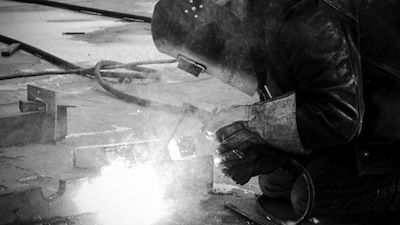BBC Documentaries
Waiting for Work (2010x164)
:
Politically passionate Jack Ashley was one of the first working class reporters at the BBC. He wanted to show the suffering caused by high unemployment.
The documentary caused a storm.
Almost half a century later his daughter Jackie Ashley returns to Hartlepool to discover what happened to the families in the film, and assess the impact of being under the spotlight in the new age of television, on a struggling town.
Whilst making the film Jack Ashley stayed at the Grand Hotel, but he felt uncomfortable living in luxury while he interviewed people in poverty.
Instead, to get to know the community better, he moved in with a local shopkeeper, Leo Gillen.
The Gillen family were heavily involved in making the film. They had a social conscience and wanted both the poverty and the community spirit of Hartlepool to be shown.
When the documentary was shot Hartlepool’s unemployment rate was one of the highest in the country.
The Macmillan government was under pressure to do something, and Jack Ashley believed his film, shown nationwide on the BBC, may have tipped the balance.
Lord Hailsham was appointed the new Minister for the North. But he wanted to transform the North into a tourism hot spot - in double quick time. Most of Hailsham’s plans were eventually shelved, but he is credited with re-connecting the North East with the rest of Britain through multi-million pound transport projects like Teesside Airport.
The documentary brought Hartlepool’s problems to a national audience.
One of the families featured in the film - the Coomers - claimed that they had to burn their furniture to keep warm. Their revelations about life on the breadline shocked and split the town. Some thought they shouldn’t be washing their dirty linen in public.
But after the film's impact faded, Hartlepool carried on being a town with problems.
Jackie Ashley returned to Hartlepool to discover the impact of Waiting for Work on the town and to try to follow up the
